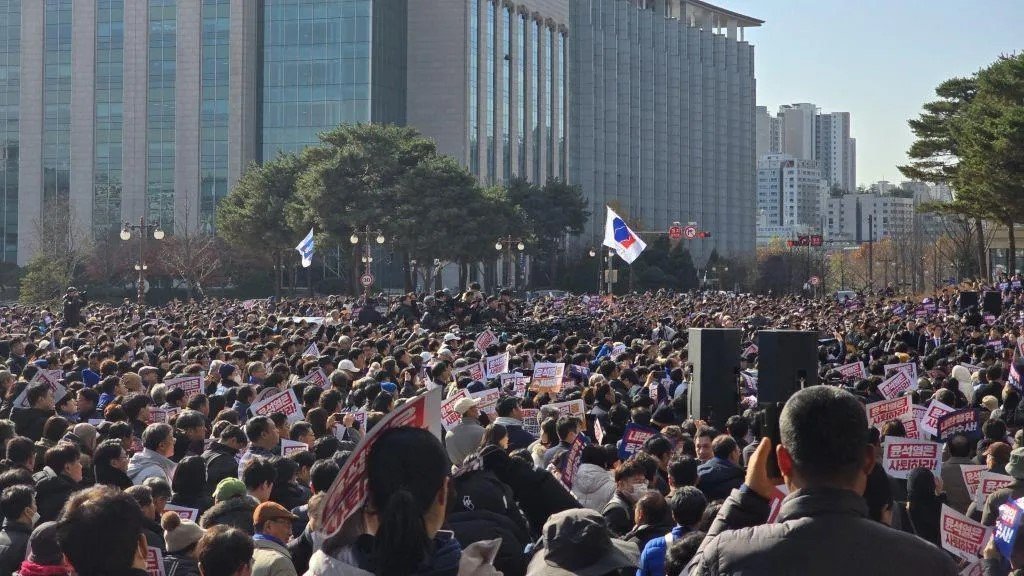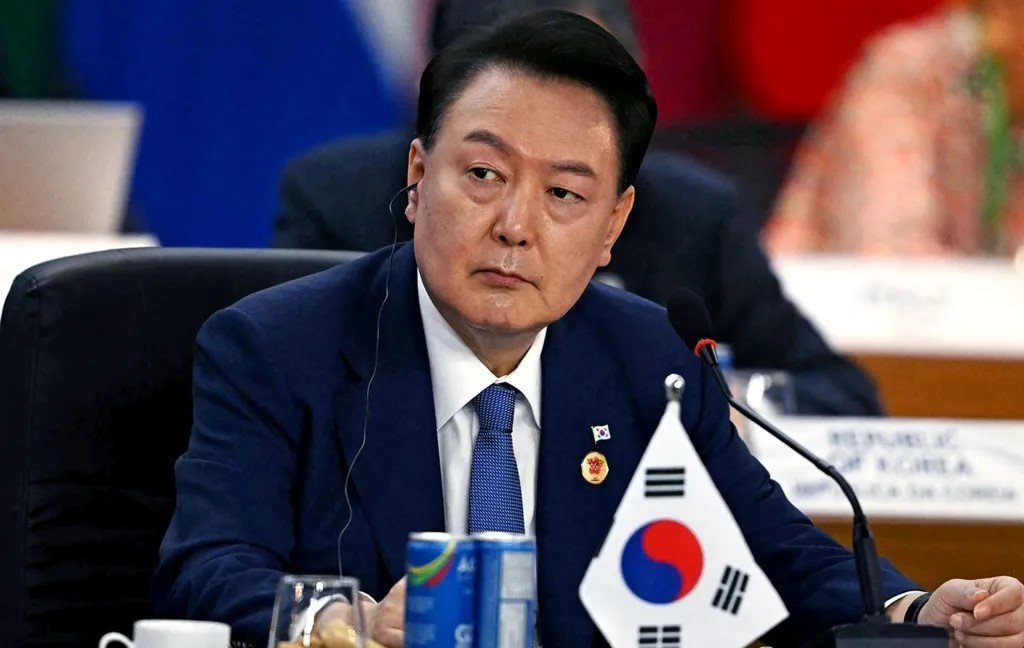In an unprecedented political gambit that sent shockwaves through South Korea’s vibrant democracy, President Yoon Suk Yeol declared martial law on December 3, 2024, citing threats from “anti-state forces.” Within hours, the move backfired spectacularly, leading to its swift repeal and widespread calls for his resignation or impeachment. The dramatic series of events has left South Korea grappling with questions about its democratic resilience and the future of its leadership.
The Martial Law Declaration: A Night of Chaos
President Yoon’s late-night announcement marked the first instance of martial law in South Korea since the country’s democratization in 1987. The president justified his decision by claiming the opposition-controlled parliament was a “den of criminals” paralyzing government functions. Citing national security threats, he vowed to eliminate “pro-North Korean forces” and restore order, calling on citizens to endure “temporary inconveniences” for the sake of the nation’s stability.
The martial law order, however, sparked immediate backlash. Troops surrounded the National Assembly, restricting entry, while helicopters hovered ominously above the capital. Protesters gathered outside parliament, with tensions escalating as soldiers clashed with demonstrators. The swift mobilization of opposition lawmakers, however, turned the tide.
Parliament convened an emergency session, where lawmakers from both ruling and opposition parties unanimously voted to repeal the martial law order. By 4:30 a.m., during an emergency Cabinet meeting, Yoon formally lifted the measure, ending a turbulent six-hour period that evoked memories of South Korea’s authoritarian past.
Democratic Institutions Push Back
The swift rejection of martial law underscored the strength of South Korea’s democratic institutions. Opposition leader Lee Jae-myung, addressing reporters, vowed to defend democracy, stating, “We will protect our country’s democracy, future, and public safety with our lives.”
The liberal Democratic Party, which holds a parliamentary majority, wasted no time in demanding Yoon’s resignation. “President Yoon Suk Yeol’s martial law declaration was a clear violation of the constitution,” the party said in a statement, calling it a “grave act of rebellion” and grounds for impeachment.
While impeachment requires a two-thirds majority in parliament, the Democratic Party and smaller opposition factions collectively control 192 seats—just shy of the 200 needed. This political arithmetic places Yoon in an increasingly untenable position.
A Gamble That Misread the Public
Yoon’s martial law gamble appears to have been a desperate attempt to consolidate power in the face of mounting challenges. His presidency, marked by a razor-thin electoral victory in 2022, has been fraught with controversies, including criticism over his administration’s handling of the deadly Halloween crowd crush in Seoul, allegations of corruption involving his wife, and a series of parliamentary defeats.

Yoon’s shock announcement has drawn huge crowds in protest
Observers suggest Yoon miscalculated the public and political reaction to his drastic move. South Korea’s modern democracy is deeply rooted in the memory of past struggles against military rule, particularly the violent suppression of the Gwangju pro-democracy protests in 1980. By invoking martial law, Yoon inadvertently reminded the nation of a dark chapter many had hoped to leave behind.
International and Domestic Repercussions
Yoon’s declaration also drew international concern. The U.S., a key ally with 28,500 troops stationed in South Korea, expressed “grave concern” over the developments. “We have every hope and expectation that any political disputes will be resolved peacefully and in accordance with the rule of law,” stated U.S. Deputy Secretary of State Kurt Campbell.
Domestically, the fallout has left Yoon politically isolated. Reports propose that members of his own conservative People Power Party are considering expelling him. Senior presidential advisers have offered to resign en masse, further eroding his support base.
A Lesson in Democratic Resilience
South Korea’s rejection of martial law reaffirmed its status as a robust democracy. While Yoon’s approval ratings have plummeted, his failed gambit underscores a deeper truth: authoritarian measures are no longer tolerated in a society that has fought hard for its democratic freedoms.
The coming weeks will determine whether Yoon can salvage his presidency or if his political career will end in ignominy. Regardless, this episode will serve as a stark reminder of the delicate balance between power and accountability in democratic governance.
President Yoon Suk Yeol’s martial law declaration was a bold yet misguided attempt to assert control over a deeply divided political landscape. Its swift repeal by lawmakers and resounding public opposition highlight the enduring strength of South Korea’s democratic foundations. As the nation moves forward, it does so with renewed vigilance against the specter of authoritarianism—a testament to the resilience of its people and institutions.
Also Read
Trump Urges Putin to Avoid Escalation in Ukraine Conflict, Signals Shift in U.S. Policy
